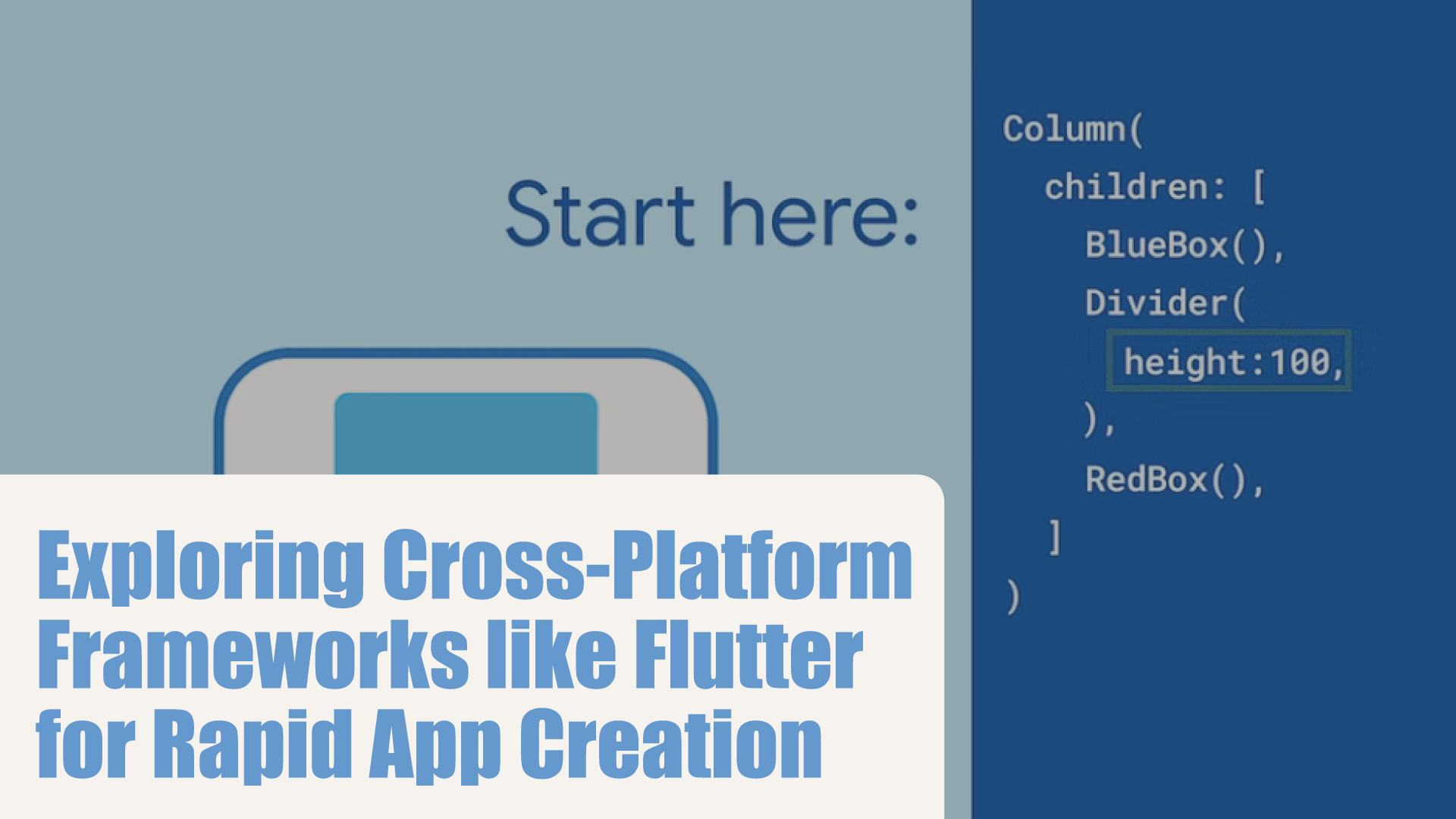In today’s mobile-first world, reaching a wider audience often means building apps for both Android and iOS. Traditionally, this required developing separate apps for each platform, a time-consuming and resource-intensive process. However, exploring cross-platform frameworks like Flutter offers a compelling solution: write code once and deploy it on both platforms. This approach streamlines development, reduces costs, and ensures a consistent user experience across devices.
Benefits of Cross-Platform Development
- Faster Development Cycles: By using a single codebase, developers can significantly reduce development time compared to native development.
- Reduced Costs: Less development time translates to lower costs. Plus, you only need to maintain one codebase, saving resources.
- Consistent User Experience: Exploring cross-platform frameworks ensure a look and feel that’s consistent across platforms, offering a seamless user experience.
- Wider Reach: Reaching both Android and iOS users with a single codebase allows you to tap into a larger market.
Focusing on Flutter Framework
This blog post dives deeper into Flutter, a popular open-source framework developed by Google. We’ll explore its unique features, including:
- Hot Reload: See code changes reflected in the app instantly, accelerating development iterations.
- Dart Programming Language: Dart is a modern and expressive language, making development efficient and enjoyable.
- Rich Widget Library: Flutter provides a vast collection of customizable widgets for building beautiful and complex UIs.
- Performance: Flutter apps are known for their smooth performance and responsiveness, rivaling native apps.
Considering the Drawbacks
While cross-platform development offers advantages, it’s important to acknowledge potential drawbacks:
- Limited Access to Native Features: Some platform-specific features might require additional work or be unavailable to certain regions.
- Performance Considerations: While generally good, performance might not always perfectly match native apps in highly demanding scenarios.
Conclusion
Cross-platform frameworks like Flutter are revolutionizing mobile app development, offering speed, cost-effectiveness, and a wider reach. While not a perfect replacement for native development in every case, Flutter provides a powerful tool for building high-quality mobile apps efficiently.

